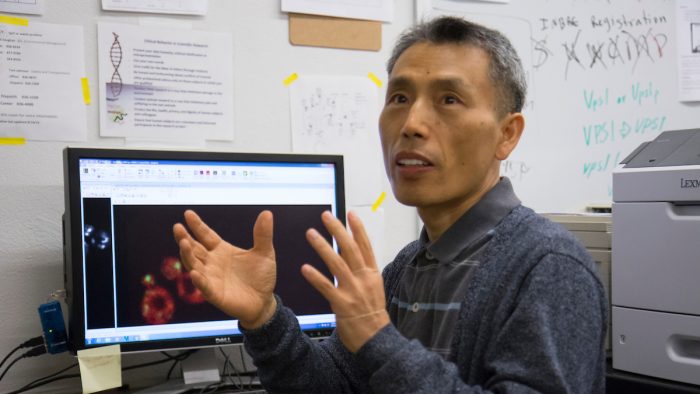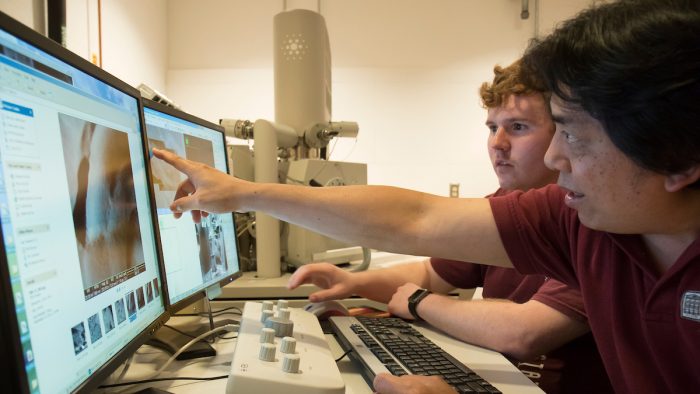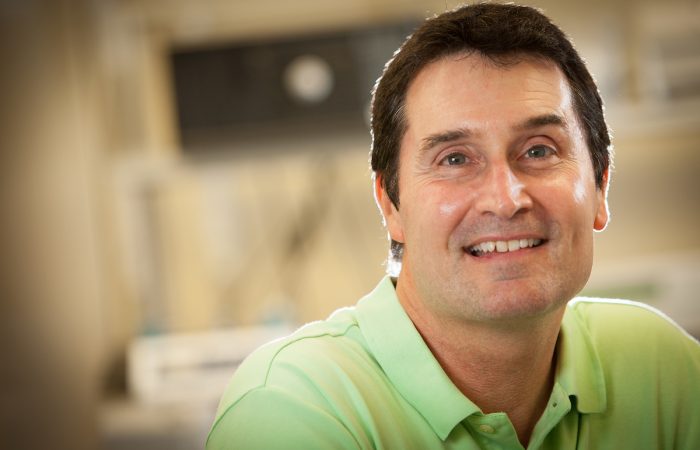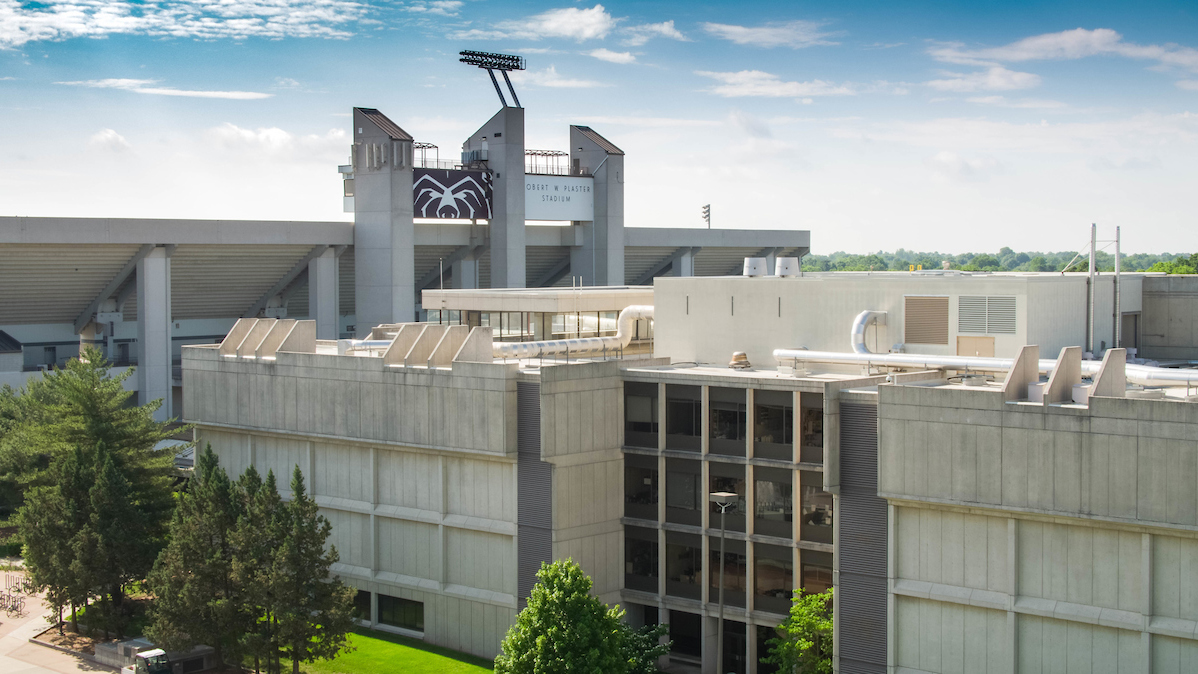The 2018 Foundation Awards for Teaching, Research and Service showcase amazing professors and how they are making our community better.
Of the six recipients, half are CNAS faculty.
Drs. Kyoungtae Kim, Ridwan Sakidja and Paul Durham were recognized for their dedication to research or service.
All recipients receive $3,600 to fund their projects.
Read about the rest of the recipients
About Kim’s award
Kim, an associate dean of the College of Natural and Applied Sciences, won a Foundation Award for Research.
His work with a protein called dynamin could be the next cure for Alzheimer’s and other diseases.

He also works with Mercy Hospital to look at the toxins in thyroid cancer, hoping to understand the cells so he can try to eradicate them.
Kim wants to make sure that nanomaterials will be safe by the time they are ready to be widely used.
Kim is working on several projects related to this research.
A few of them are:
- The effect of chemical modification of dynamin in membrane trafficking (2017-current).
- Gene expression profiles with in silver and cadmium nanoparticles (2015-current).
- Effect of chlorotoxin-SAP on thyroid cancer cell lines (2018-current).
- Physical interaction between dynamin and Golgi SNAREs (2016-current).
- Dynamin-mediated fusion between Golgi and endosomal membrane (2017-current).
- Identification and characterization of myosin motors for the endosome-to-Golgi traffic (2017-current).
About Sakidja’s award
Sakidja, associate professor of physics, won a Foundation Award for Research.
His research lies between creating and processing new materials.

He looks into the mechanical structures on metallic materials in hopes to make it stronger.
Sakidja also designs and structures physical properties of disordered solid structures like bulk metallic glass.
He also develops atomistic modelling of nanostructure materials.
He is also interested in promoting more interdisciplinary research throughout the university and beyond.
Sakidja’s projects related to these research areas include:
- Multimodal Approach to Modeling Creep Deformation in Ni-base Superalloys at Missouri State (lead-institution) in collaboration with my colleagues from UMKC and Missouri S&T, a grant supported by DoE (12/15/17-12/14/20)
- Predictive Modeling of Polymer-Derived Ceramics: Discovering Methods for the Design and Fabrication of Complex Disordered Solids, at Missouri State in collaboration with my colleagues from UMKC as the lead institution and Ohio State, a grant supported by NSF (10/1/17-9/30/20)
- Ab-Initio Molecular Dynamics Study on the Ionic Mobility in Li-Ion Based Solid State Electrolytes, a computational project at UT-Austin as a part of the XSEDE project (NSF-supported).
- Phase Stability in High melting and Corrosion Resistant Borosilicides, Aluminides and Novel Carbides, a computational project at NERSC located at Lawrence Berkeley National Laboratory DoE-supported).
- First Principles Calculations of Novel Structural Phases in Bimagnetic Core-Shell Nanoparticles, a computational project at UT-Austin as a part of the XSEDE project (NSF-supported).
- Hands-On Virtual Reality (VR) Applications to Investigate Mechanical and Chemical Integrity of Carbon-Based Nanocomposites as a part of NASA-Missouri Space Grant Consortium Affiliates Award.
About Durham’s award
Durham, distinguished professor of biology, won the Foundation Award for Service.
He was recognized for service within the university and the community.
Durham teachers a variety of classes where he connects with students.

He also served on several MSU Public Affairs committees, the university steering, vision and hearing committee, the CNAS student scholarship committee and as a Science Olympiad judge.
Durham has taught classes at his Nixa parish. He has also been in the choir for over 10 years, offers Tai Chi courses, is a reader between services and co-directs the youth program.
His professional discipline includes 18 published papers in the last five years. He has been listed on 16 patents. His lab has had 60 abstracts accepted for presentations since 2012.
In the past five years, Durham himself has had over 25 invitations to present his research.
He has also served on scientific advisory boards.
Congratulations, Drs. Kim, Sakidja and Durham!

